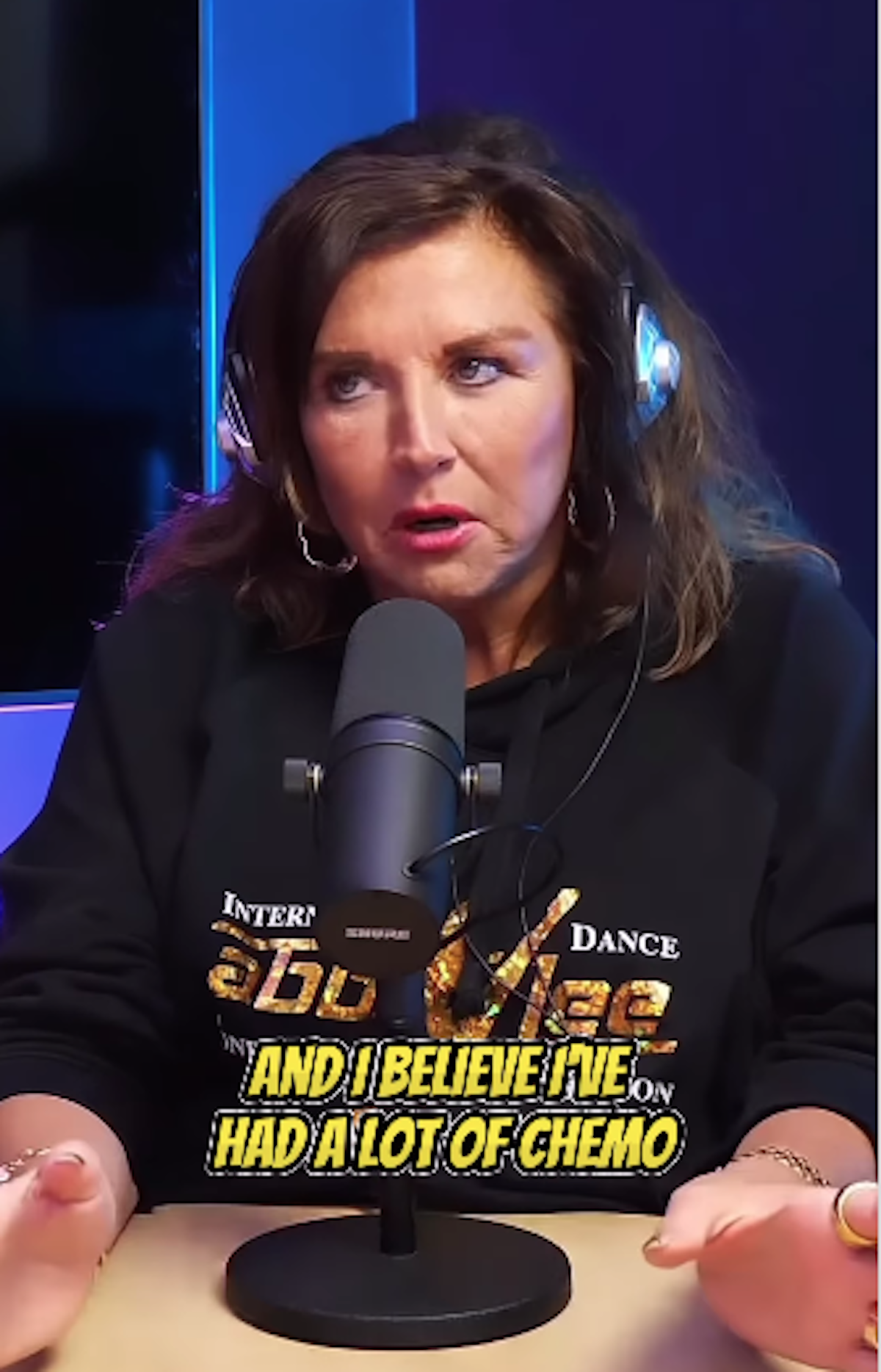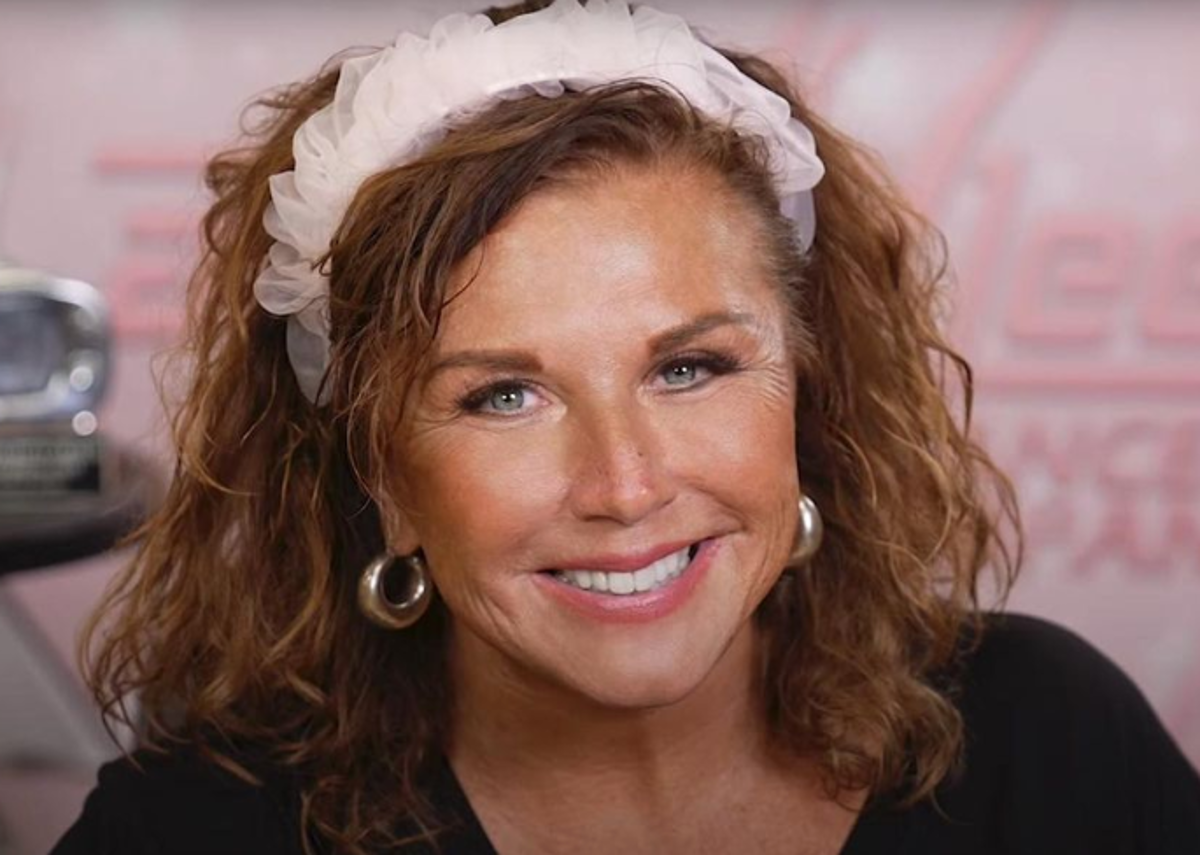Abby Lee Miller's Battle With Cancer
- Abby Lee Miller battled a rare kind of cancer called Burkitt lymphoma in 2018 after experiencing pain in the back of her neck.
- Burkitt lymphoma, according to the National Cancer Institute, is a type of aggressive B-cell non-Hodgkin lymphoma that often starts in people's organs.
- In a new podcast episode, the 57-year-old cancer survivor and “Dance Moms” star referred to how much chemo she’s had while she was trying to recall memories from the show.
- Many cancer survivors have reported experiencing something called “chemo brain,” when people have difficulty with the cognitive ability to mentally process or understand things after chemotherapy and other cancer treatments.
- Ways to manage chemo brain include writing important information down, planning your day ahead of time, getting plenty of sleep, exercising your mind with puzzles or games, and working with a social worker for more support.
Miller was diagnosed with Burkitt lymphoma (an aggressive form of non-Hodgkin lymphoma) in 2018 after experiencing pain in the back of her neck. She’s had chemotherapy and numerous surgeries for treatment.
Read More
The weekly podcast is equipped with Miller talking about “all the chaos that ensued as her television journey began in 2011.”
Managing the Side Effects of Cancer
- Dealing With Grief Related to Health Problems
- Recommendations for a Healthy Lifestyle: One Doctor’s Advice for Cancer Survivors
- Adjusting Chemo to Mitigate Side Effects
- Chemotherapy Side Effects – Neuropathy
- Chemotherapy Side Effects – Nausea
- Chemotherapy Side Effects – Hair Loss
- Chemotherapy Side Effects – Constipation
The Apple podcast’s preview explains, “Join us each week as we rewatch and recap your favorite episodes of Dance Moms, Abby's Ultimate Dance Competition and Abby's Studio Rescue spilling behind-the-scenes secrets, exclusive never-before-seen content and more!”
As Miller dived into the details of her past, she referred to something called “chemo brain” while trying to recall specific memories.
She began telling a story by saying, “Paige, Chloe, Nia, and Maddie were in the same group of children and I believe…”
She then paused and said, “I’ve had a lot of chemo so bear with me…” before continuing the story.

Understanding Chemotherapy
There are a lot of myths about how chemotherapy can impact the lives of people. Oftentimes, it’s assumed that while undergoing chemotherapy you'll be restricted to your home, and unable to move around, but the opposite is actually true, Dr. Marleen Meyers an oncologist at NYU Perlmutter Cancer Center, previously told Survivor Net.
How to Deal With the Side Effects of Chemotherapy
Many people can continue to work and Dr. Meyers encourages her patients to exercise, even if it's just a walk. It can make a huge difference when dealing with fatigue, a common side effect of chemotherapy.
There are also treatments to help with the side effects of chemotherapy, like medications for treating nausea and vomiting as well as anemia.
Other side effects like hot flashes, night sweats, and insomnia may be able to be managed with integrative medicine, like mindfulness, yoga, acupuncture, and even chemo brain – which is what Miller referred to experiencing in her new podcast.
Chemo Brain Is Real
“Chemo brain is real,” ovarian cancer survivor and stand-up comedian Karen Mills previously told SurvivorNet. She explained how she once “pulled into the drive-thru lane at the bank and told the teller, ‘I'm here to pick up my prescription.'”
According to the National Cancer Institute(NCI), chemo brain is “a term commonly used to describe thinking and memory problems that a patient with cancer may have before, during, or after cancer treatment.”
“Signs and symptoms of chemo brain include disorganized behavior or thinking, confusion, memory loss, and trouble concentrating, paying attention, learning, and making decisions,” the institute explains.
RELATED: Chemobrain Is RealTurns Out, It Changes Your DNA
Managing Chemotherapy Side Effects
The NCI states that this condition could be brief or last for many years and researchers say chemo isn't the sole culprit of chemo brain.
“From many sources of data, we now know patients experience impairments not just after chemo, but after surgery, radiation, hormonal therapy,” and other treatments, said Dr. Patricia Ganz, an oncologist and director of Cancer Prevention and Control Research at UCLA's Jonsson Comprehensive Cancer Center, previously told the National Cancer Institute.
Dr. Douglas Blayney, a medical oncologist at Stanford Health Care, has done research on the condition and says “the dysfunction is usually temporary and clears within a year of starting treatment. For some people, its effects are more long-lasting, and may never completely resolve.”
RELATED: Does Your Doctor Believe Chemo Brain is Real?
These patients “have to work harder,” Dr. Ganz said. “Often they'll get the answer right on a neuropsychology test, but it takes much more effort for them to come up with that” than people who haven't been exposed to treatment.
Dr. Ganz believes inflammation may be a factor, adding, “If we could identify people who might be more susceptible biologically to this long-term treatment, we could test whether an intervention might be helpful,” she said.
Managing Chemo Brain
There are many tools survivors can use to help cope with chemo brain. The NCI suggests the following ways:
- Get rest and plenty of sleep at night.
- Plan your day ahead of time.
- Keep up with light physical activity (your doctor can help you come up with a plan that makes sense for you).
- Exercise your mind through meditation, puzzles or games.
- Write things down or keep lists of important information.
- Talk with a social worker for additional resources and support
Abby Lee Miller's Health Journey
Abby Lee Miller was diagnosed with a rare kind of cancer called Burkitt lymphoma in 2018 after experiencing pain in the back of her neck. Burkitt lymphoma, according to the National Cancer Institute, is a type of aggressive B-cell non-Hodgkin lymphoma that often starts in people's organs.
Miller has had numerous surgeries and chemotherapy for cancer treatment. She also underwent emergency surgery over a year ago after shattering her tibia-fibula in a swimming pool and keeps struggling with broken bones after “10 rounds of very invasive chemotherapy” left her bones “very brittle.”
What Kind of Lymphoma Do You Have? Why Your Type Matters
“Sometimes, I feel fabulous, other times I'm in a lot of pain,” she told The U.S. Sun in a 2023 interview. “My back is chronic it hurts constantly where the surgery was.”
However, after all the hardship, Miller is also working toward her health goals. She's currently in physical and occupational therapy in the hopes of ditching the wheelchair and reverting back to using a walker, which she used prior to her tibia-fibula incident.
“Even though I'm paraplegic and I'm in the wheelchair, I am not letting it hold me back,” she said.
You May Have Side Effects Years After Non-Hodgkin Lymphoma Treatment: Here's What to Watch For
Life after active treatment for any cancer may look different than it did prior to your diagnosis. In an earlier interview with medical oncologist Dr. Michael Jain of the Moffitt Cancer Center, we learned “there are a number of different things that people may experience in the late-term period” after successful treatment for non-Hodgkin lymphoma.
“Depending on the age of the patient when they're diagnosed with their cancer, or the other health issues that are going on, sometimes the functional status, or what people are able to do, is not quite what it was before the cancer,” Dr. Jain explained.
Some survivorship issues can include things like peripheral neuropathy as well as chemo brain or cognitive issues. But, unfortunately, post-treatment concerns don't stop there.
“One of the things we focus on is trying to prevent secondary cancers,” Dr. Jain said. “Although the chemotherapy often did a very good job in terms of curing the initial cancer, there is sometimes a risk of secondary cancer happening. And so patients should be watched for that and also should be aware that other cancers may occur.”
That's why it's important for cancer survivors to decide on a survivorship plan that includes a schedule for follow-up exams and tests as well as screenings for any new cancers.
But, it’s important to remember, everyone's case of non-Hodgkin lymphoma is different. There are so many different types of the disease, and one person's recovery from treatment can look vastly different from another person's.
“Patients, once they finish their therapy, are often quite well,” Dr. Jain said. “If they have not had too many complications from their therapy, they are often able to go back to many of the same things that they did before they had their diagnosis of cancer and are able to live full and complete lives.”
Non-Hodgkin Lymphoma Treatment and Beyond
If you're struggling with life after cancer treatment, know you're not alone. Don't hesitate to talk to doctors, a therapist, family, friends or a support group if you're struggling with how life has changed since your diagnosis.
Contributing: SurvivorNet Staff
Learn more about SurvivorNet's rigorous medical review process.


